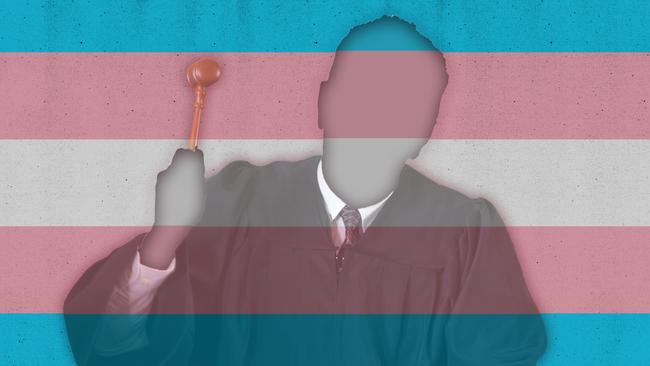Family Court allows cross-sex hormones for teen despite ‘real risks’
A teenager has been granted permission to access cross-sex hormones, despite a Family Court judge saying he expects to see future ‘regret’ cases relating to gender dysphoric children come through the courts.

A teenager has been granted permission to access cross-sex hormones despite a Family Court judge conceding there are risks associated with the treatment, and that he cannot be certain the hormones will benefit the teenager in the long term.
Judge Peter Tree, in delivering judgment in the highly contentious legal case, afforded the teenager – known pseudonymously as Ash – the “dignity of risk” to take testosterone and continue transitioning from female to male.
In concluding his decision, Justice Tree said he expected Australian courts in the future to see “regret” cases in relation to cross-sex hormone administration to children. “Nonetheless, I have earnestly tried to ascertain what is best for Ash,” he said.
The case, which The Australian has extensively covered over the past year, was brought by one of Ash’s parents who wished to obtain sole parental responsibility to approve the administration of hormones.
The other parent opposed the treatment.
Justice Tree gave “great weight” to the Australian Standards of Care and Treatment Guidelines, which were developed by the Royal Children’s Hospital Melbourne and endorse a gender-affirming model of care.
However, he said the UK Cass Review – a landmark report that recommended limitations on medication for gender-dysphoric children – may have been driven by an “overt political imperative” and he gave it “little weight” in reaching his decision.
The Family Court continues to grapple with the complexities of gender identity, especially in the context of children, medication and surgery.
In a separate matter, a judge determined a father’s refusal to conform with traditional gender norms left his three children “confused” and encouraged them to “question their gender identity” after they all began identifying as non-binary, ruling the two youngest children would not be permitted to see their father for an extended period.
In another case, the mother of a 13-year-old with gender dysphoria abruptly withdrew an application seeking a Family Court order to allow the child to take puberty blockers after trying to have the independent children’s lawyer assigned to the matter thrown off the case.
In handing down his judgment, Justice Tree conceded there was a “real risk” the testosterone treatment “may not achieve all that Ash wants it to” and that “he may still be unhappy with having a body … which he would prefer were different”.
“He may therefore still be to some degree dysphoric,” the judgment reads.
“But overall, the evidence persuades me that there will be some masculinisation, and thus some alleviation of his dysphoria if testosterone were to be administered to Ash, although when, for how long, and to what extent, remains unknown.”
Justice Tree outlined various considerations in favour of Ash accessing treatment, including that he had consistently lived as a male, been exposed to “serious transphobic bullying”, and has worn a chest binder and layered clothing “so as to conceal the female aspects of his appearance”.
He also said Ash had lived “stealth” as a male, meaning he had not disclosed to his classmates that he is biologically female. “(This) has exacted an emotional, social and educational cost on him, including recently having returned to distance education,” the judgment reads.
However, Justice Tree also acknowledged considerations against the treatment, including that the hormones “may not alleviate his dysphoria, either materially or even at all”, and that Ash’s cognitive development is ongoing, meaning he may not understand “all the risks”.
He paid consideration to concerns the treatment may not alleviate Ash’s gender dysphoria, that it may impair his fertility, and that irreversible changes may start about three months after testosterone commences.
Justice Tree found that while the possible risks associated with taking testosterone, including infertility or blood disorders, are “real”, they are “not unacceptable”.
During the hearing, the court was told Ash and his 10-year-old sister, known as Lee, made a pact that Lee would harvest her eggs to ensure Ash could have children if the transition affected his fertility in the long term.
Justice Tree in his judgment said the parent who opposed treatment “unduly emphasised” the risks in order to further their case, and said while Ash may become infertile it didn’t necessarily preclude him from having children.
“Even if he does become incapable of conceiving a child, if it transpires he forms a relationship with a natal female who is not transgender, or if is, is not infertile, having children is not precluded, although they may not have a genetic connection with Ash,” he wrote.
“It is likely that most Australians would now think the lack of direct genetic connection between a child and their parent is irrelevant. Likewise there remains the prospect of adoption and surrogacy.”
Justice Tree said that in less than two years Ash will turn 18 and therefore “be able to medically do whatever he wants”.
“It would obviously be farcical to reject what a 17-year and 11-month-old young person wants to do as being undeserving of weight, when a month later they can do it anyway,” he said. “Similar considerations apply – albeit with lesser force – to someone Ash’s age.”
Justice Tree relied heavily on the evidence of a gender clinician who was a witness for the Independent Children’s Lawyer, known to the court as Dr O.
Dr O favoured the World Professional Association for Transgender Health guidelines as “by far the best available guidance at this time, and … informed by decades of expert clinician experience”.
Justice Tree agreed, giving the guidelines – as well as the Australian Standards of Care and Treatment Guidelines and state government policy – “great weight, because they are models of care arrived at by consensus of the relevant professional bodies”.
He said the Cass Review, a landmark probe that recommended “extreme caution” be taken when prescribing hormones to children, was undertaken “in a vexed environment”.
“I do not overlook that there may have been an overt political imperative behind the Cass Review – which was, after all, initiated by the UK executive government,” he said.
“Particularly the then UK prime minister is on record of having publicly said on 5 October 2023 – whilst the Cass Review was being finalised: ‘And we shouldn’t be bullied into believing that people can be any sex they want to be. They can’t. A man is a man and a woman is a woman’.”





